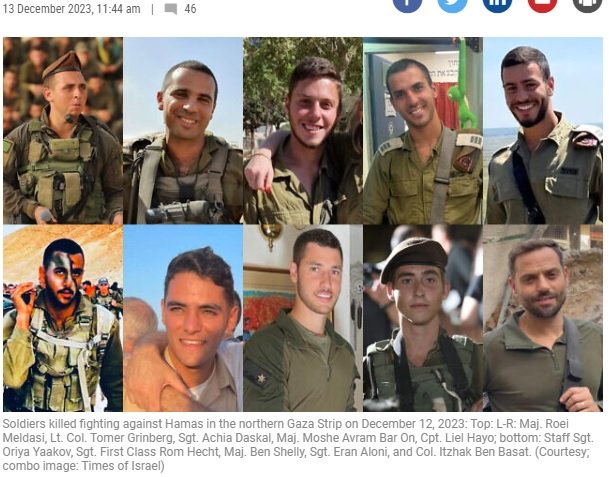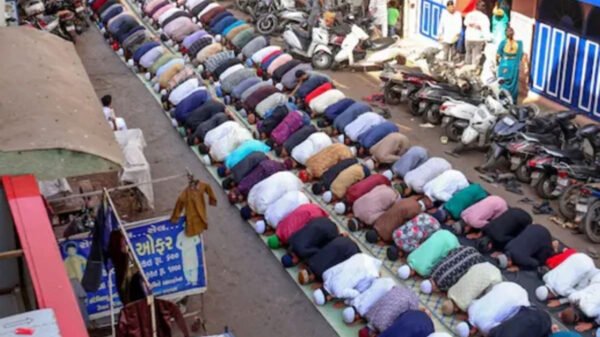Israel reported its most significant combat losses in over a month following an ambush in the ruins of Gaza City on Wednesday, resulting in increased diplomatic isolation amid rising civilian casualties and a worsening humanitarian crisis.
Simultaneous intense fighting unfolded in the northern and southern parts of the enclave, a day after the United Nations called for an immediate humanitarian ceasefire. U.S. President Joe Biden criticized Israel’s “indiscriminate” bombing of civilians, noting its adverse impact on international support.
Israeli warplanes continued to bomb Gaza extensively, exacerbating conditions for hundreds of thousands of families enduring the winter weather in makeshift tents. The majority of Gaza’s 2.3 million residents have already been displaced.
Israel initiated its campaign against the Hamas militant group controlling Gaza in response to a border breach on October 7, resulting in the deaths of 1,200 Israelis, mostly civilians, and the seizure of 240 hostages.
Since then, Israeli forces have besieged and devastated the enclave, with over 18,000 confirmed deaths and many more feared lost or inaccessible in the rubble.
In Rafah, at the southern end of the Strip, where many sought shelter, the aftermath of an overnight airstrike displayed a family’s tragic fate in the rain. Bodies, including those of small children, were laid out in bloodied white shrouds, prompting emotional reactions from grieving relatives.
Since the collapse of a week-long truce in early December, Israeli forces expanded their ground campaign from the north to the south, storming the main city of Khan Younis. The past 24 hours saw ten Israeli soldiers killed, marking the worst one-day loss since October 31.
Most casualties occurred in Gaza City’s Shejaiya district, where troops faced an ambush while attempting to rescue others. Hamas asserted that Israeli forces could not subdue Gaza and predicted increasing losses.
In the north, heavy fighting also occurred in Jabaliya, where Israeli forces reportedly besieged and stormed a hospital, detaining and mistreating medical staff. In the south, Israeli forces in Khan Younis faced fierce resistance, with no significant advancement reported in the last 24 hours.
Hospitals in the north have largely ceased functioning, while those in the south are overwhelmed by the influx of dead and wounded.
International agencies report that limited aid reaching Gaza is distributed only in parts of Rafah, near the Egyptian border, where conditions have worsened due to heavy rains and winds.
Despite Israel’s claims of encouraging aid through Egypt’s border, the U.N. cites inspections and insecurity as factors slowing down aid delivery.










